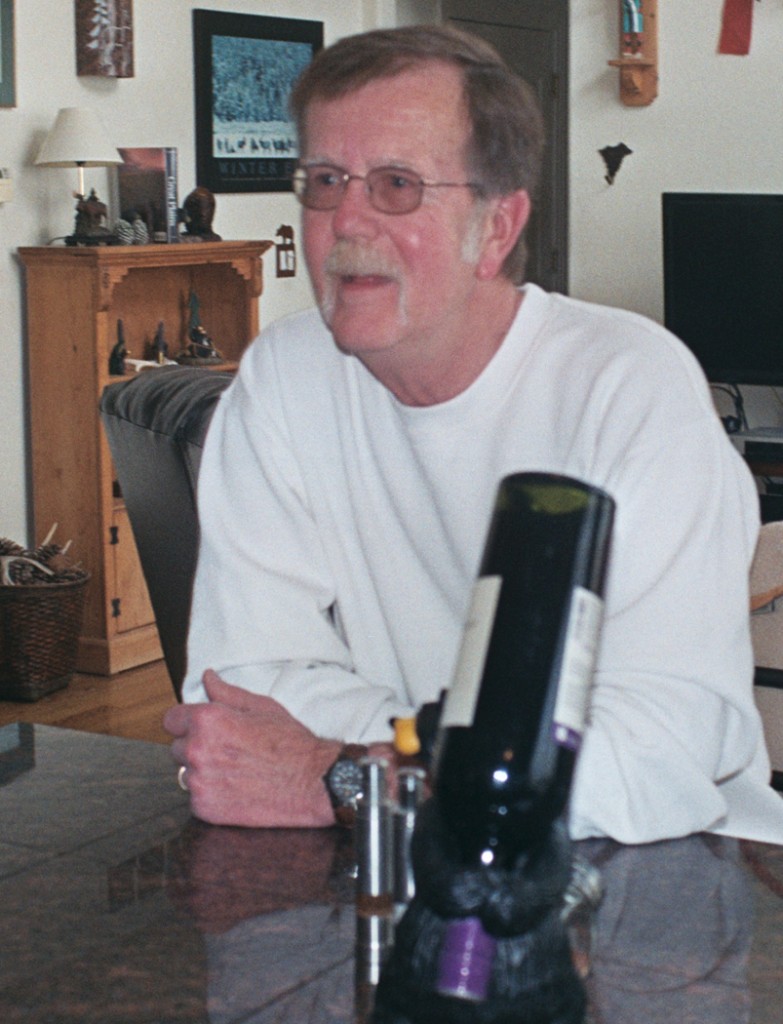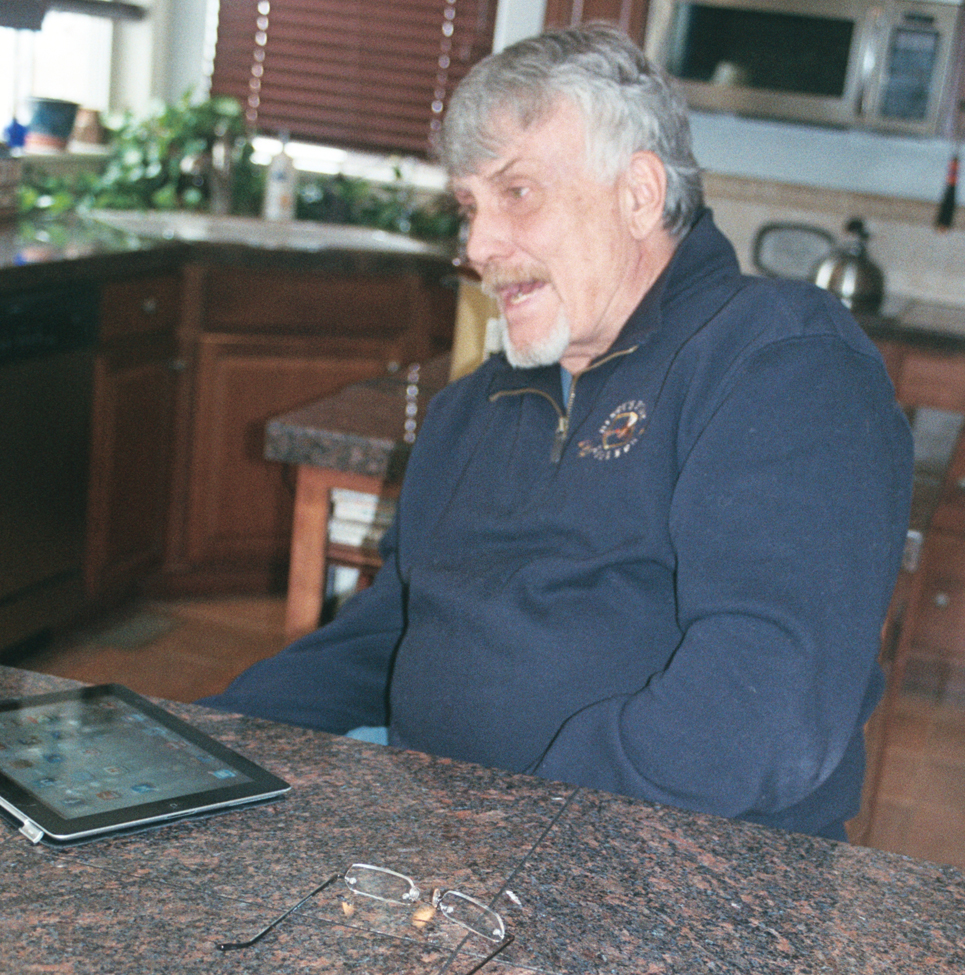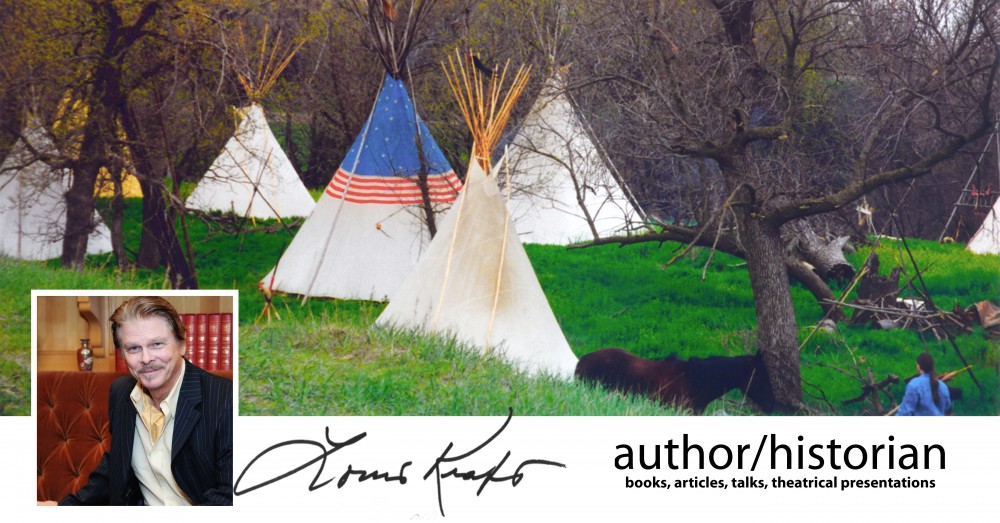Website & blogs © Louis Kraft 2013-2020
Contact Kraft at writerkraft@gmail.com or comment at the end of the blog
Errol Flynn and Ned Wynkoop … I linked them for all time in Ned Wynkoop and the Lonely Road from Sand Creek. That linking will continue, for even though they lived in different centuries, racial equality has joined them for all time. These are important words, and to know me, you must understand that this is what I write about. Racial equality. People … just people, for that is all we are—people. Without us, people, we do not exist.

LK in Layton & Vicki Hooper’s back yard (April 19, 2013). This image, which has been cropped, shows the view from the back of the Hooper home looking toward the First Range (need to check on this). You are also able to see one of the houses behind the Hooper home. On this day, Layton and I will drive to Centennial for the Order of the Indian Wars symposium on the 20th. All we had to do was get out of Layton’s driveway and onto city streets to I-25. Clear sailing after that. … Oh, I’m wearing my cold weather gear: A hat, sport coat, sweater, scarf, pants, and beaded moccasins. I’ve always wanted to run around naked in the snow, but didn’t want to shock anyone. Perhaps next time. Photo by Layton Hooper (Image © Louis Kraft 2013)
This ol’ boy enjoyed being “snowed in” for the first time in his life in Fort Collins, Colorado. Layton & Vicki Hooper opened their gorgeous home to me. I wasn’t going, “Oh s—t, I can’t research in Denver.” No, sir! Instead I was enjoying their company, enjoying life. My regret? This snow wasn’t the kind you make into snowballs.

Layton Hooper at John Monnett’s home in Lafayette on April 16, 2013. (Photo © Layton Hooper & Louis Kraft 2013)
On April 16, a fellow had cleaned Layton’s driveway so we could get out, and the freeway was scraped. Layton drove me to Indian wars historian John Monnett’s home in Lafayette, for a planned meeting. John and I are linked with much of our subject matter, and this has gotten us together and allowed us to become friends. On this day we not only talked about my upcoming book on Sand Creek and my desire that John become one of my key go-to-people but also the upcoming Ned Wynkoop talk for the Order of the Indian Wars symposium in Centennial, Co., on April 20. John’s research, which he shared with me on this day, changed the direction of my talk. No big deal, for this is what talks are about—change and adaptation.

John Monnett at his home in Lafayette, Co., during a great conversation wherein we discussed Sand Creek and him working with me and reviewing for me, but also discussing information that would add value to my upcoming Wynkoop talk. (Image © John Monnett & Louis Kraft @ 2013)
John had some important information that I needed to work into the talk. Hell, I don’t know what I’m going to say until I say it. Everything depends upon my concentration and my preparation. I’m always open to adding new and important info to my talks. Sharing details of events and hopefully turning people on. If one person hears a talk and decides to dig into the subject, I’ve had one hell of a successful day.
Learning about people, reaching out to people, accepting people is one day at a time.
Unfortunately the press/publishing houses that print most of what is published for general consumption has a narrow view, a view that is dictated by sales. Can’t blame them, for if they don’t hit their sales numbers they are out of business. … I hate to say it, but much of what they sell is pure crap.
I have a choice, … sell crap or what I believe to be the truth. As the “X Files” constantly told us, “the truth is out there.”
We all have decisions to make in our lives. I have made mine. …
I met Mr. Flynn first, not meeting Mr. Wynkoop until the late 1970s. I already knew who I was, but it took awhile to realize what was important in my world. These two gentlemen, that is, their lives, made me realize what was really important in our world, … people. People of every race, color, religion, political belief. People—you, me, the men and women who control what happens in the world, … people, just people control our future. Our future is before us, and it will continue on and on or it will end. People will decide the future of mankind. What is more important? Accepting people from all walks of life or destroying our world? The reality stands before us …



